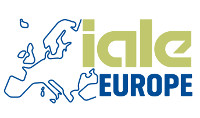
Reflections from the IALE World Congress
Symposium “How is Landscape Ecology shaped by research policies?”
As part of the IALE-Europe working group "Europe’s Stakeholders – Shaping future policy and science", the EC organized a symposium during the IALE World Congress 2019 to discuss how Landscape Ecology is shaped by research policies with experiences from Europe and all around the world to learn from each other. The discussion was supported by an online survey that we conducted prior to the session among congress participants and the wider landscape ecology community.
Although the research policies and funding programmes are very diverse, it has been discussed that there is a tendency towards increased transdisciplinary research programmes, aiming at the involvement of stakeholders, society and SME’s. This tendency has been discussed very controversially, from either side. On the one hand, this helps to better transfer research results into policies and practice, having an impact. It also offers ‘windows of opportunities’ for relevant topics due to increased awareness of society to climate change and biodiversity loss. On the other side, there are a lot of challenges going along with, such as the need of skills in transdisciplinary research approaches and co-design. Critical thoughts have been also formulated about the different expectations of research as well as different evaluation schemes what successful research means. Therefore communication competences are increasingly needed, and the need to translate ‘science language’ for policy makers. Furthermore, it has been noted that a shift from research to innovation also bears risk to forget fundamental research which still needed.
Another reflection was on multiple barriers or research framework conditions that hinder progress in landscape ecology research, such as time constraints to discuss, publish, and apply for funding also to translate research results. It has been noted that researchers are primarily evaluated on quantitative research outputs such as published scientific papers or acquired funds hindering the transfer of research results to the practices, not being honoured.
Inspiring have been experiences from participants, reporting from achievements in landscape ecology without remarkable funding, which is still a reality in many countries. Apart from the funding we need ‘ideas that people bring together’, platforms to develop partnerships, where ideas can be created, evolved and merged to new visions.
The results of the session have been documented. At the European Congress 2021 in Warsaw, the EC plans to follow up on this discussion to develop ideas to strengthen landscape ecology research and an opinion paper about a new Landscape Ecology research agenda for Europe.

